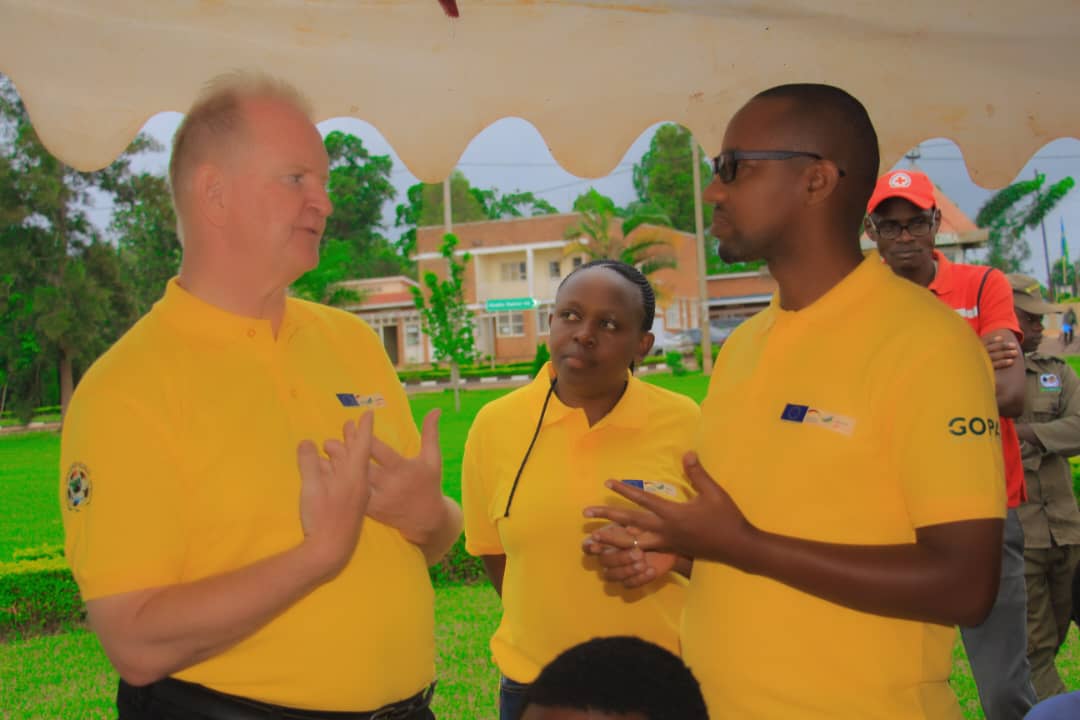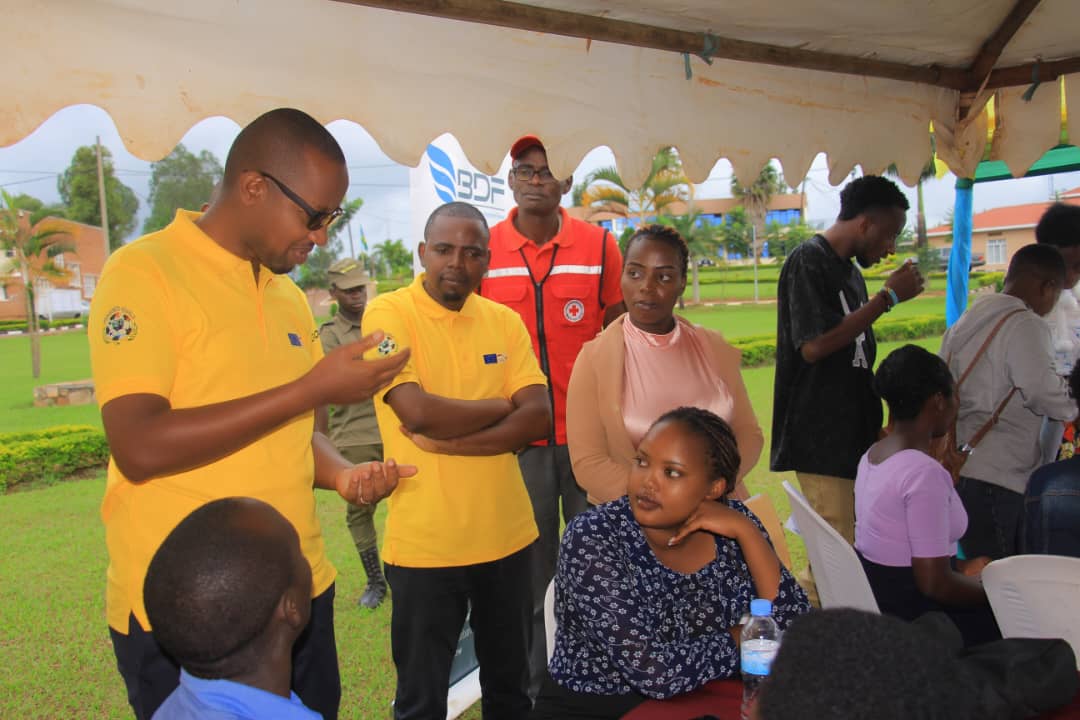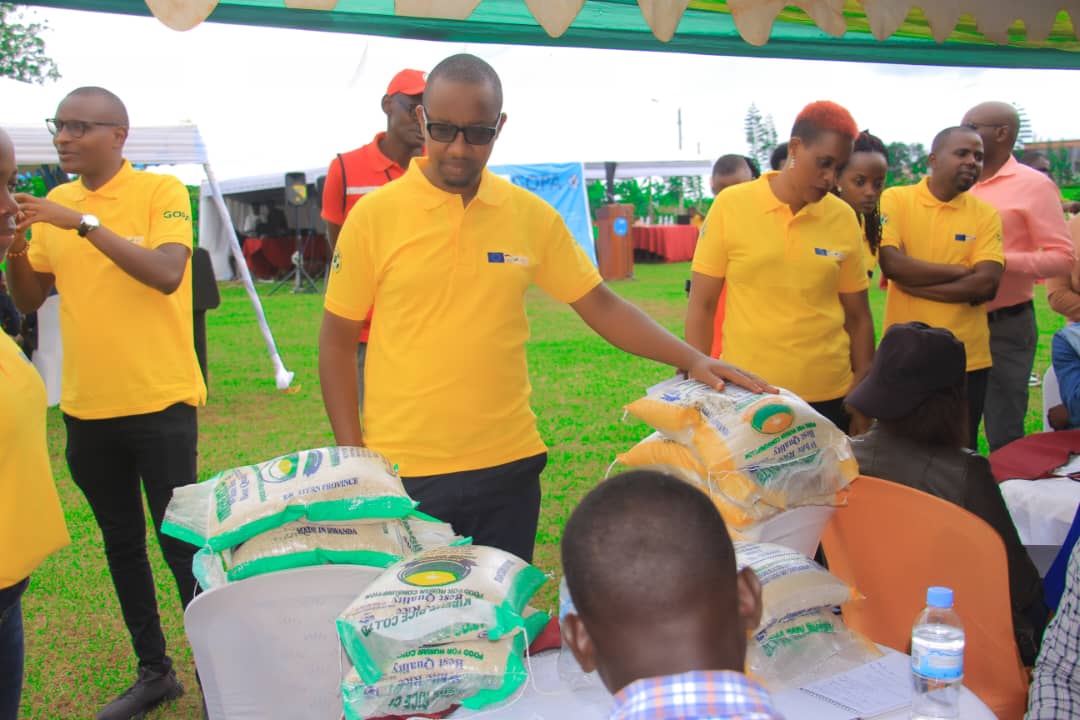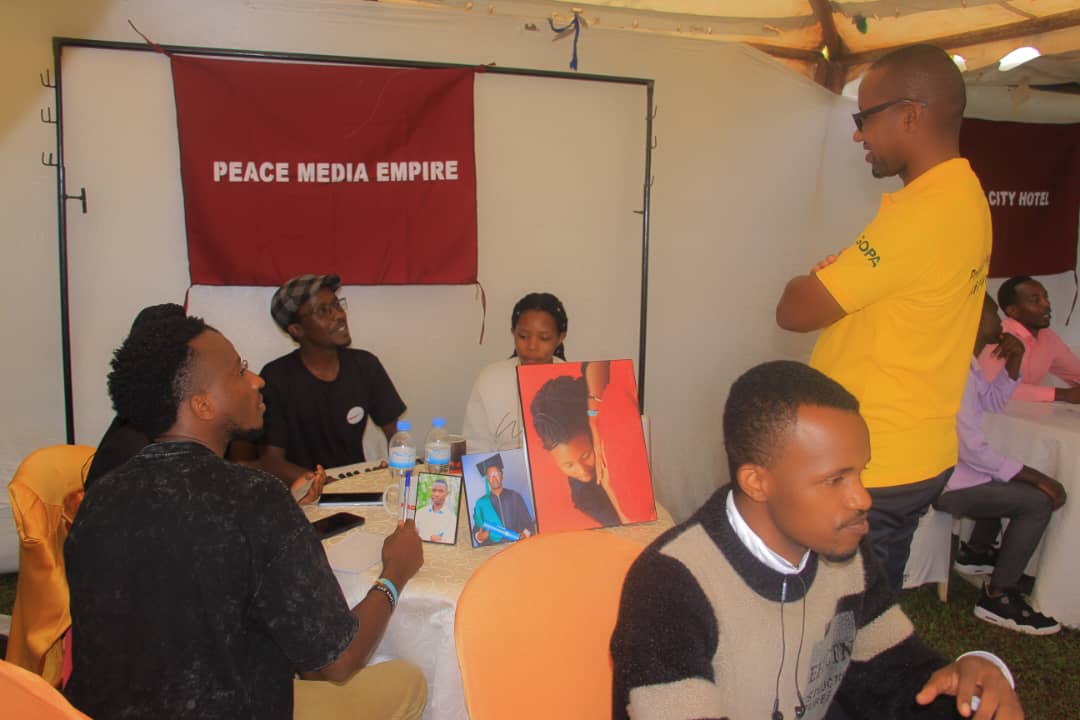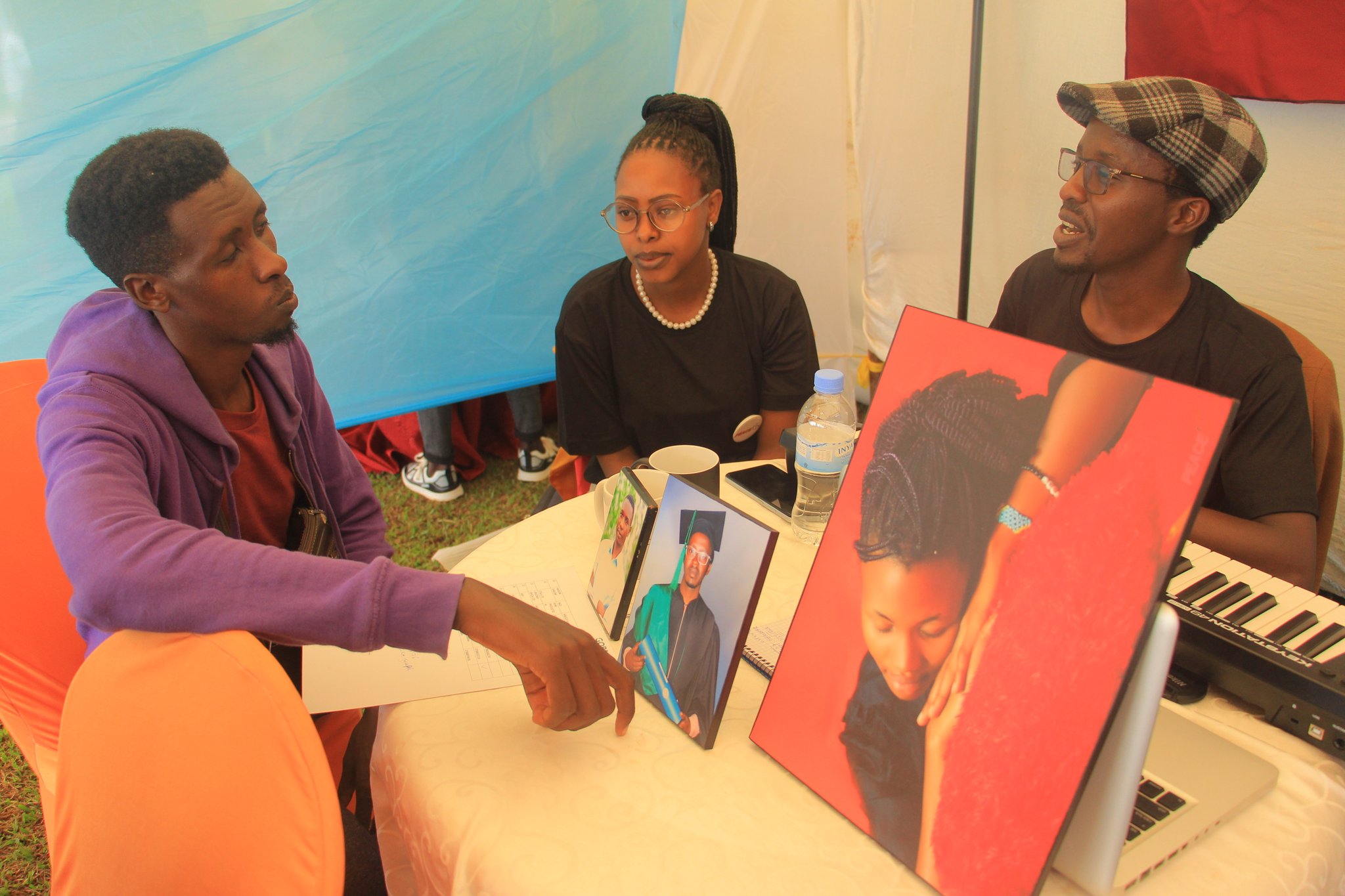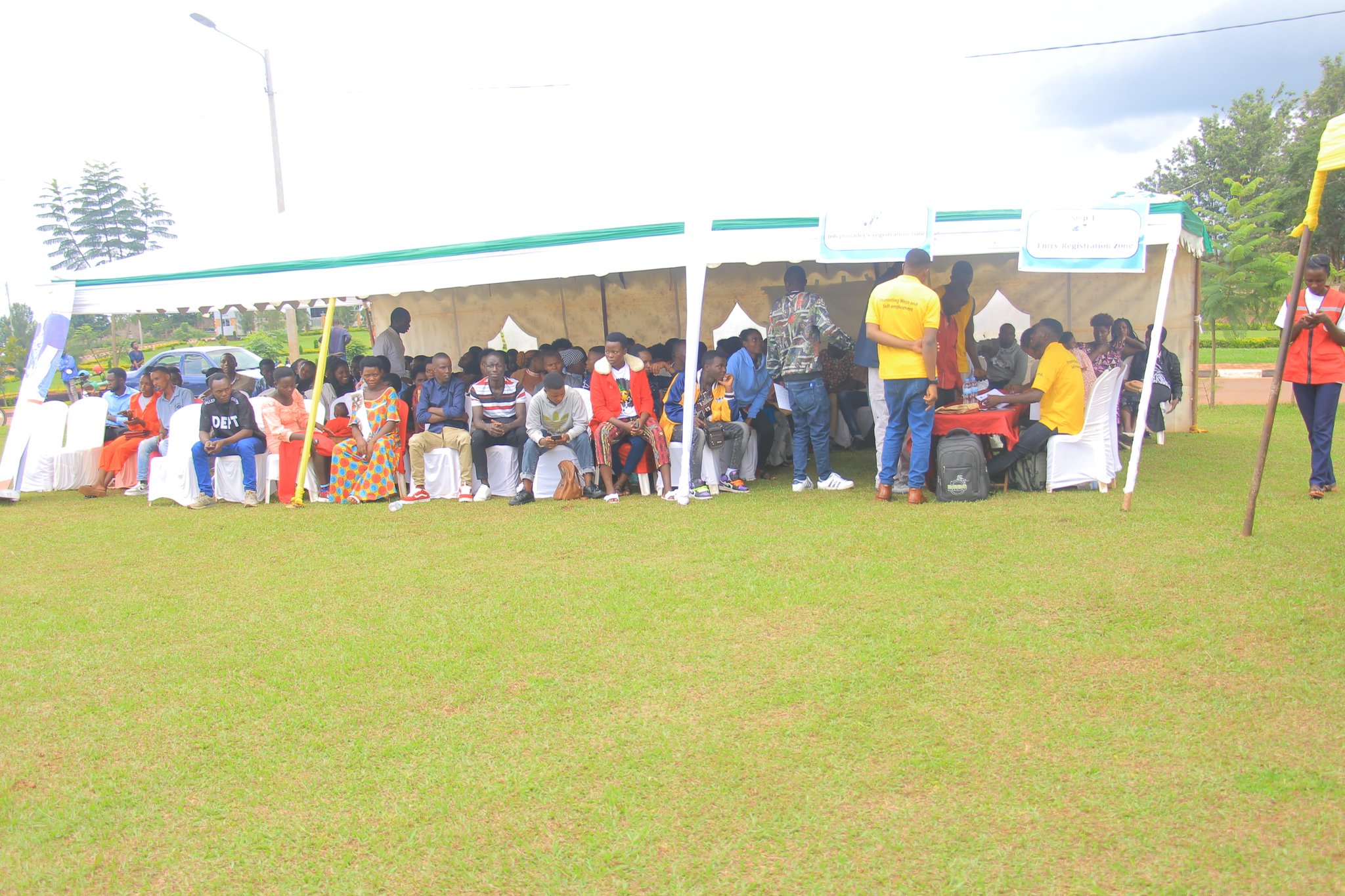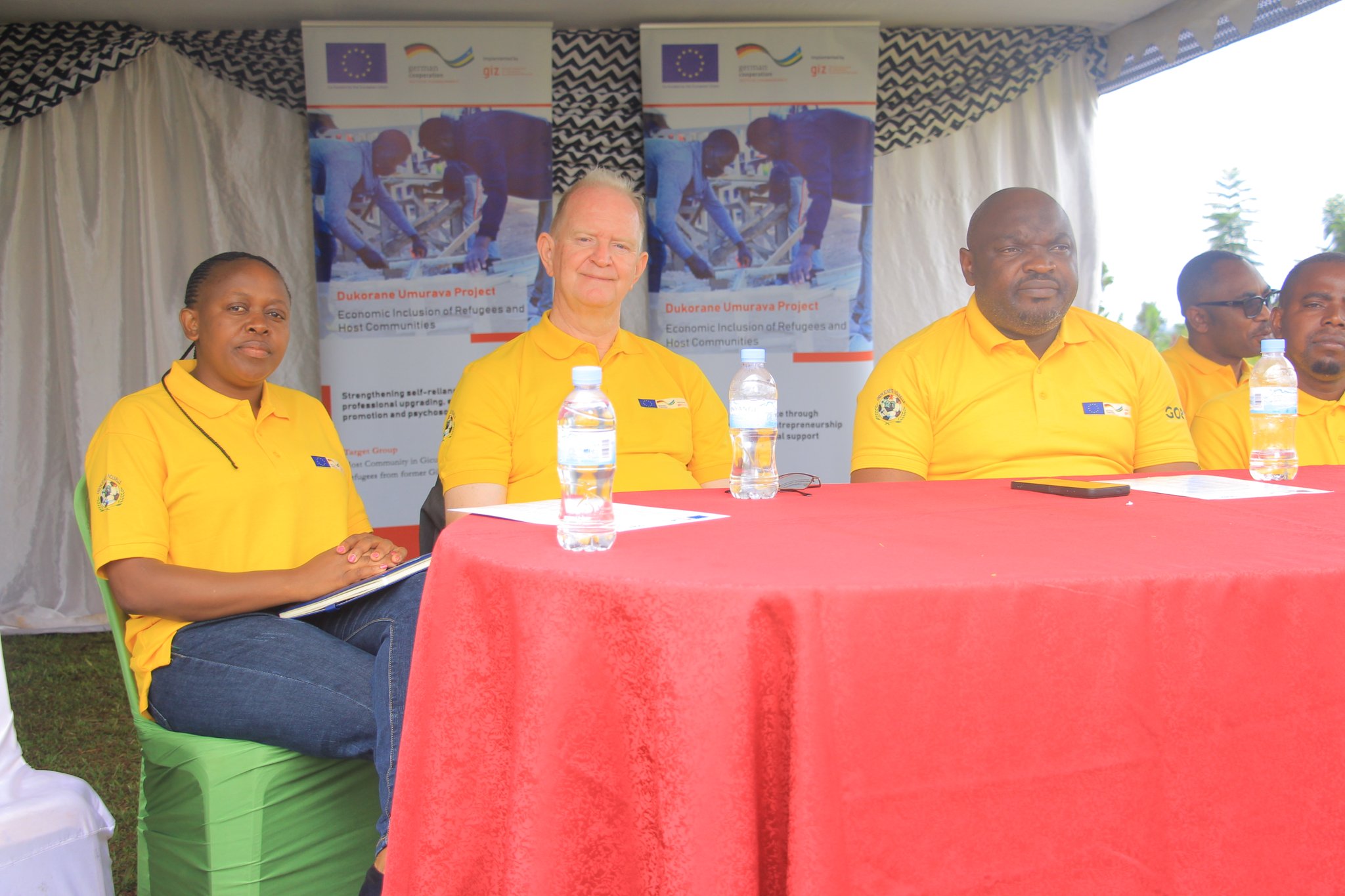The Youth of Kirehe District in Eastern Province of Rwanda, including those in Mahama Refugee Camp have connected with Employers through GIZ/Gopa.
Economic Inclusion of Refugees and Host Communities (ECOREF) in collaboration with Vision Jeunesse Nouvelle trough GIZ/Gopa held the 1st job fair in Kirehe District aimed to connect job seekers with potential employers.
This event brought together over 200 TVET graduates and over 30 enterprises and companies.
More than 200 Youths from Kirehe District in Eastern Province, have been linked with employers in the District including Industries, Banks and business owners for the purpose of learn to be innovative in order to fight poverty on event held on 3th April, 2024.
This Project aims to develop the Youth of Refugees and those outside the Camps.
Beside this, is part of the plan to fight unemployment among young people and create new jobs.
The participants are from the Mahama Refugees Camp and other Youths from 12 Sectors of Kirehe District.
With in Six-Month, They learnt various Short Courses including; Culinary arts, Carpentry, Construction, Mecanic-Automobile, Electricity, Prombing, Hair Dressing, Sewing, Welding, Painting and Food & Beverages.
These short courses are held at IPRC-Ngoma and other various TVET’s.
Kirehe District, statistics show that out of a population of over 460,000 people, 123,000 are youths as shown by the 2022 census.
In this District, the statistics show that the youth unemployment rate is 20.4%; However, the Administration shows that it has set itself the goal that at least this year new jobs should be created for 5,500 people.
One of job seeker, Mbabazi Joseline from Mahama Sector, said:“First of all, i thank GIZ/Gopa, because they helped me to learnt Food & Beverages. In addition, they gave us a way to meet employers. Working in a Hotel and applying for a job is one of the hardest things for us nowadays”.
Ndikumagenge Merikior also said:“Connecting Job seekers with potential employers, will help us to access the labor market easily. Meanwhile, We’re happy to be here”.
On the part of employers, they also believe that it helps them to find qualified workers.
Kankwanzi Anastasia, who owns a Factory in Dagaza, Gahara Sector, said:“This project helps us get the qualified workers we need. I would like to have more than 60, now I had 30 and I think today I got the rest”.
Mukandemezo Mediatrice, from Vision Jennesse Nouvelle, which organized this event said that:“We came in Kirehe District to help the unemployed Youth of Mahama Refugees Camp and others to links up with entrepreneurs to fight against the poverty”.
Mayor of Kirehe District, Mr. Rangira Bruno, thanked the organizers of this event by said that:“This is a good activity. It helps Youth to get a job or to know how to get a job. Back to Refugees, They’re no longer regarded as burdens to our District, unlike before; nowadays, they go to school to acquire skills, work, and be productive. Integrating refugees and host communities into the workforce can build a more sustainable and inclusive future for all”.
According to the United Nations High Commissioner for Refugees (UNHCR), TVET is regarded as a core pillar of the 15 by 30 roadmap, with the target of a 15 per cent enrolment of young refugees in higher education by 2030.
Beyond creating opportunities for relevant skills and training, the career orientation of TVET refugee graduates has contributed to bridging the gap between the labour market and refugee job seekers in host districts in Rwanda.
Integrating refugees into Rwanda’s school system and the labour market aligns with Article 17(1) of the 1951 Refugee Convention, to which Rwanda is a signatory, which grants refugees the same rights to wage-earning employment as those accorded to the most favourably treated nationals of a foreign country in the same circumstances, as well as the UN Refugee strategy 30 to promote refugee inclusion in and through education.
Currently, Rwanda hosts 134,519 refugees; 62.20 per cent of them have fled from neighbouring Congo, 37.24 per cent from Burundi, and 0.56 per cent from other countries.
According to data from UNHCR-Rwanda of March 2023, Over 58,000 of them live in Mahama Refugee Camp.
Photos
